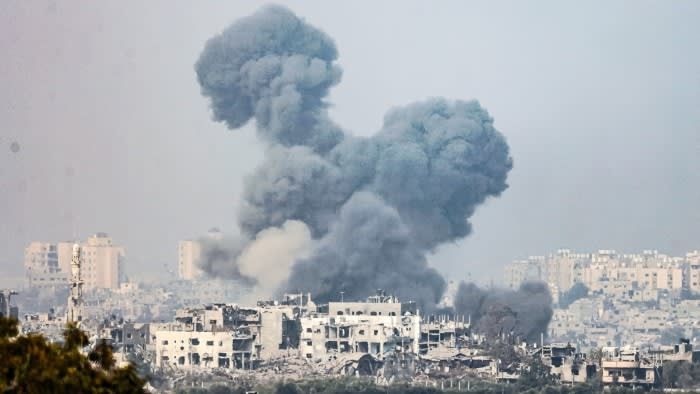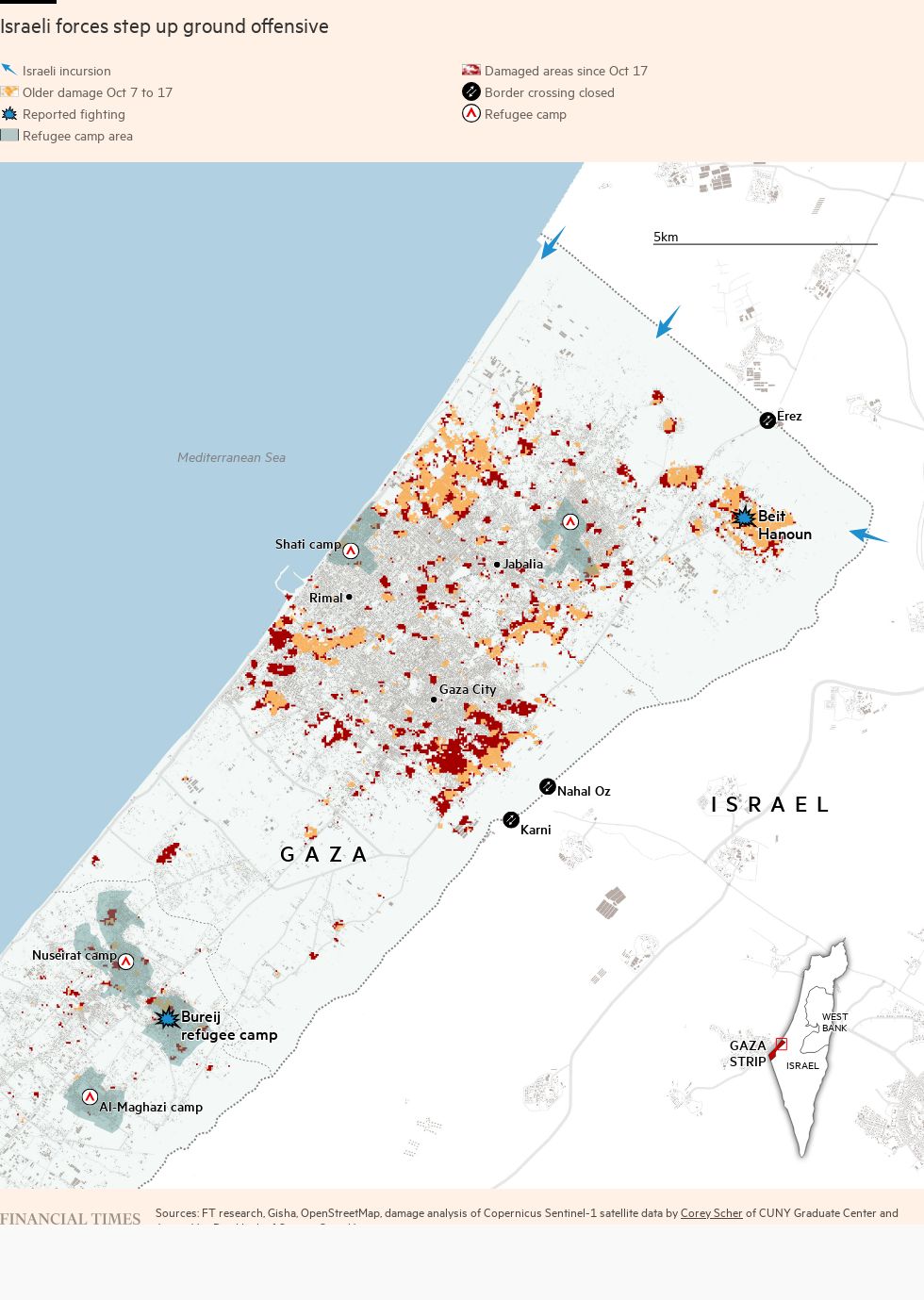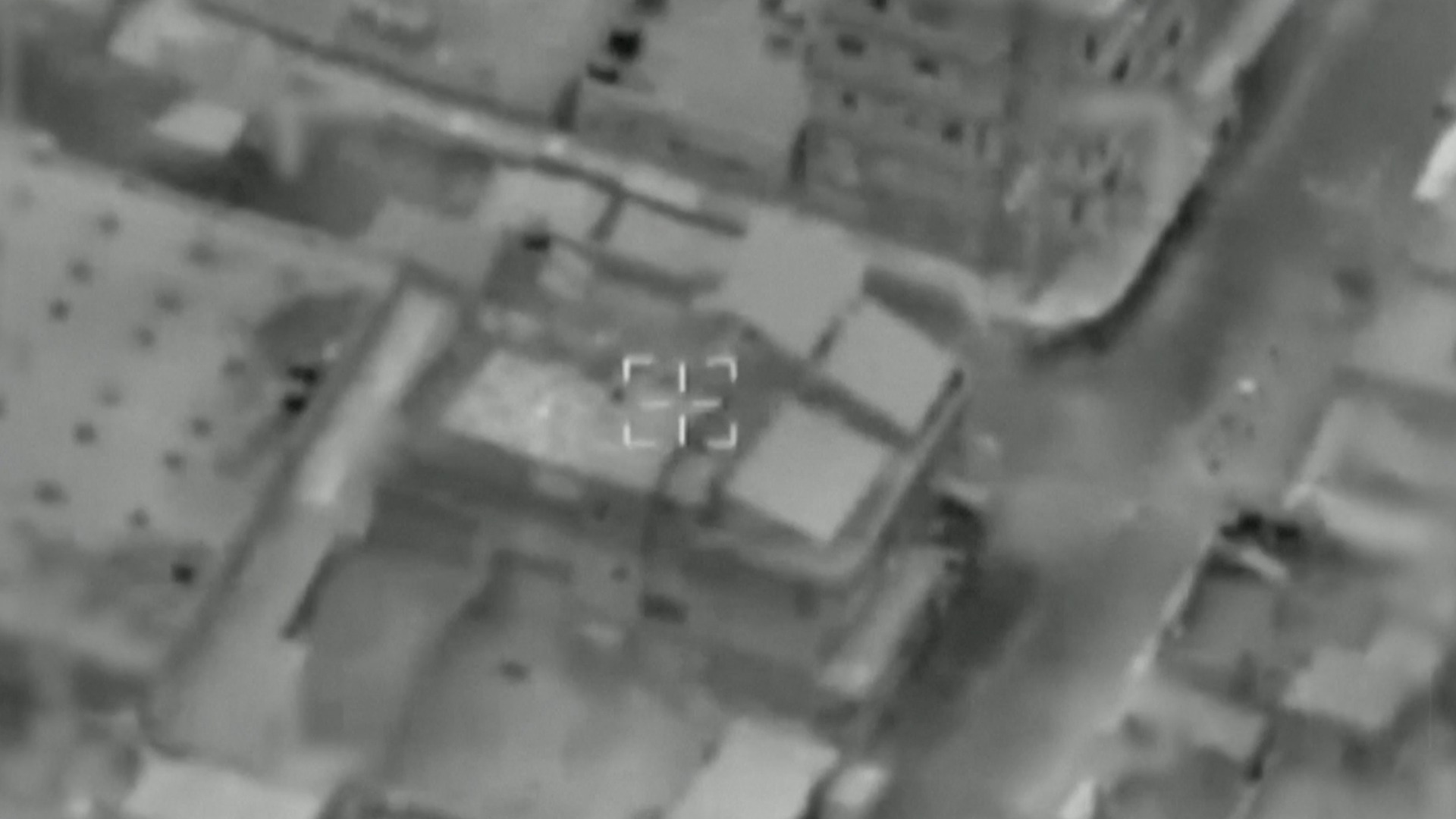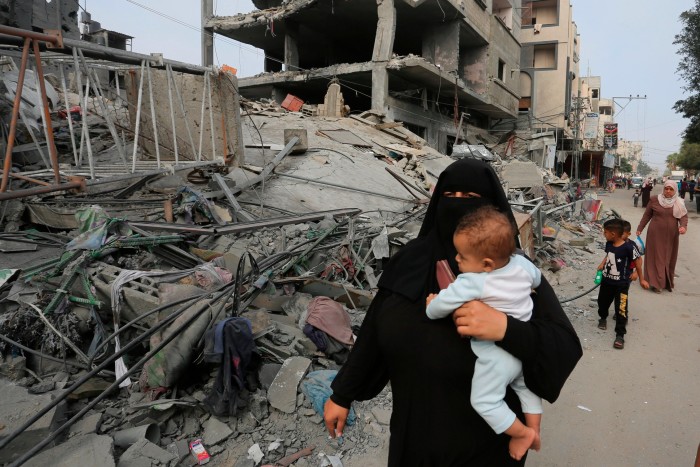Israeli offensive ‘advancing’ in Gaza after forces’ overnight fight

Gain access to the Editor's Digest without any cost.
Every week, Roula Khalaf, who serves as the Editor of the FT, picks out the news articles and feature stories that she likes the most and shares them with readers through her newsletter.

Israel made a statement that their attack on Gaza was making progress, following a night of fighting during a more extensive ground operation. They were backed up by a powerful air attack that has caused disruptions to communication in the area.
The fourth major invasion of Gaza by the Israeli army seems to be their biggest one so far. Rear Admiral Daniel Hagari, who is a military spokesperson, said on Saturday morning that they were making progress in the different stages of the conflict.
In previous attacks conducted by Israeli forces, such as a previous one carried out by naval soldiers, they had retreated from the Gaza Strip within a few hours. However, this time around, it appears that they are still stationed in the northern regions of the strip even after a day of entering.
Hamas declared that they had fought against the Israeli armed forces in the vicinity of Beit Hanoun, located north of the city of Gaza.
You're looking at a picture of an engaging illustration. This could happen because you're not connected to the internet or because your browser has JavaScript turned off.
During the most recent conflict, there was a large-scale attack in which there was a significant amount of aerial bombing. This attack was the largest one to occur in the past three weeks. Furthermore, Israel disabled all communication channels within the Gaza Strip. As a result, late on Friday evening, people lost the ability to make calls on their cell phones, use the internet or landlines.
According to Hagari, the IDF troops have made their way into the northern region of Gaza and have extended their activities on the ground. This move involves the participation of several forces such as the infantry, armored, engineering, and artillery units, all of which are making use of intense firepower.

The military recently put out footage displaying a large number of tanks moving about within the boundary wall that lines the top and right sides of the Gaza Strip, as well as along the coast of the Mediterranean Sea. Hagari didn't mention whether they met with any significant pushback or how far they made it into Gaza.
In a video clip, tanks could be seen positioned near a village called Beit Lahia, located on the edge of the Jabalia refugee camp. The camp is typically heavily populated. The Israeli government has been informing Palestinians to evacuate towards the south, in preparation for a potential ground invasion that is likely to target Gaza City.
It is not understood how many non-military individuals are currently present in the northern region.
Abu Mohamed, who lives in the al-Shati refugee camp near the Mediterranean Sea, has expressed that the recent events are indescribable. Families, children and women were killed using air strikes, artillery shelling, and from boats. He said that the massacres were horrible and that communications were cut off so that no one would hear them.
The increased attack happened a few days ago, following the announcement by Benjamin Netanyahu, who is Israel's Prime Minister, that his government was making arrangements for a possible "ground invasion" of Gaza. However, it's still uncertain if the heightened military activities indicate the start of a bigger conflict or not as of Saturday.
During the night, the IDF reported that they had targeted 150 locations belonging to Hamas. These locations comprised of tunnels, combat areas, and underground facilities. Additionally, they claimed to have eliminated Asem Abu Rakaba, who was thought to lead Hamas's team responsible for the aerial attack on Israel using paragliding on October 7.

The absence of communication has caused a challenge in keeping track of the number of deaths and giving aid to the injured people. The World Health Organization and Médecins Sans Frontières cannot reach their teams.
According to Palestinian officials, Israeli air strikes have resulted in over 7,300 fatalities as of last night. On the other hand, the government claims that there were 1,400 deaths in Israel caused by Hamas militants in the October 7 attack, and 222 people are currently being held captive.
Several pictures circulating on social media displayed enormous bursts of flames across the northern Gaza Strip, accompanied by gunfire. A person whom we were able to reach through a brief phone call confirmed that the gunfire persisted until late morning.
The leader of UNRWA, an organization that offers assistance to Palestinian refugees, expressed concerns about the deteriorating state of public services and societal laws in the region, which is home to approximately 2.3 million individuals.
Israel has put a stop to the entry of humanitarian help into Gaza. They only allow a limited number of trucks each day, which according to the UN and other organizations, are insufficient to provide assistance to the countless individuals looking for shelter.
Lazzarini stated that our assistance program is falling apart and there has been a recent report from UN employees indicating that individuals are now experiencing hunger for the first time.
According to Palestine TV, Ishaq Sidr, who serves as the Palestinian minister of telecommunications and information technology, reported that Israeli fighter jets had hit telecommunication infrastructure, which was crucial as it contained two connection points with the external world.
According to him, this is causing a lot of problems for ambulance services in Gaza and preventing Gazans from reporting Israeli attacks as they happen. Human rights organizations are also expressing similar worries.
Erika Guevara-Rosas, a high-level researcher at Amnesty International, stated that due to the current blackout on communications, acquiring crucial details and evidence regarding the abuse of human rights and war crimes against Palestinian civilians in Gaza will be greatly challenging. It also means we won't be able to hear firsthand accounts from those who are experiencing the violations.
Mai Khaled provided further information from Rafah for this blog post.



























































